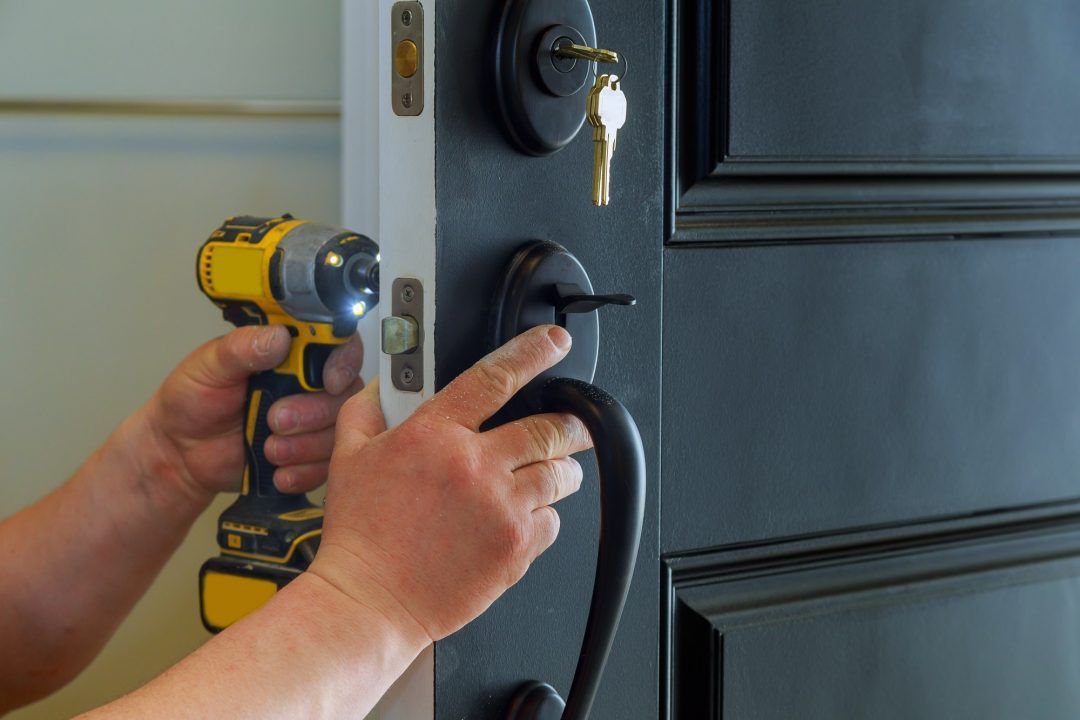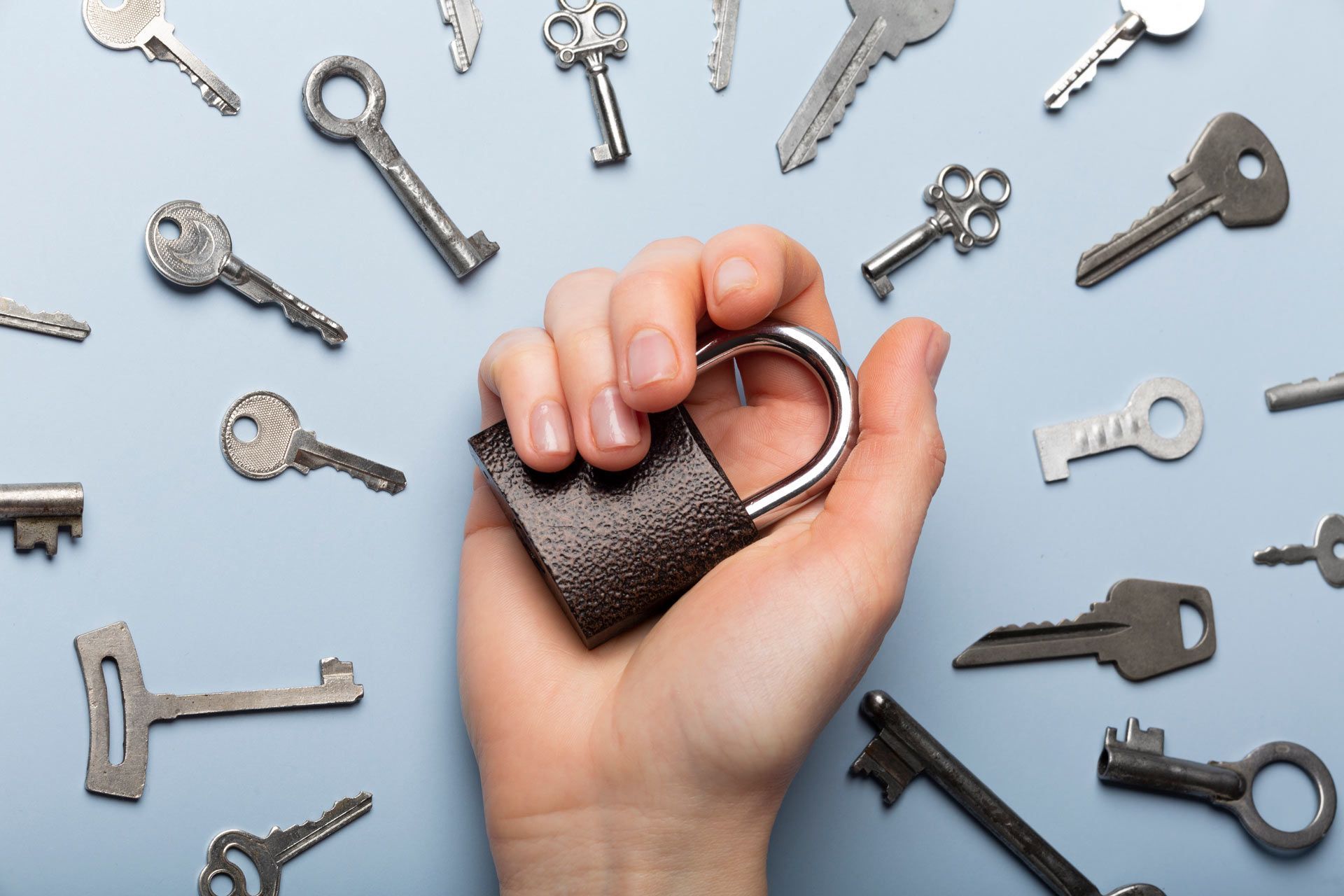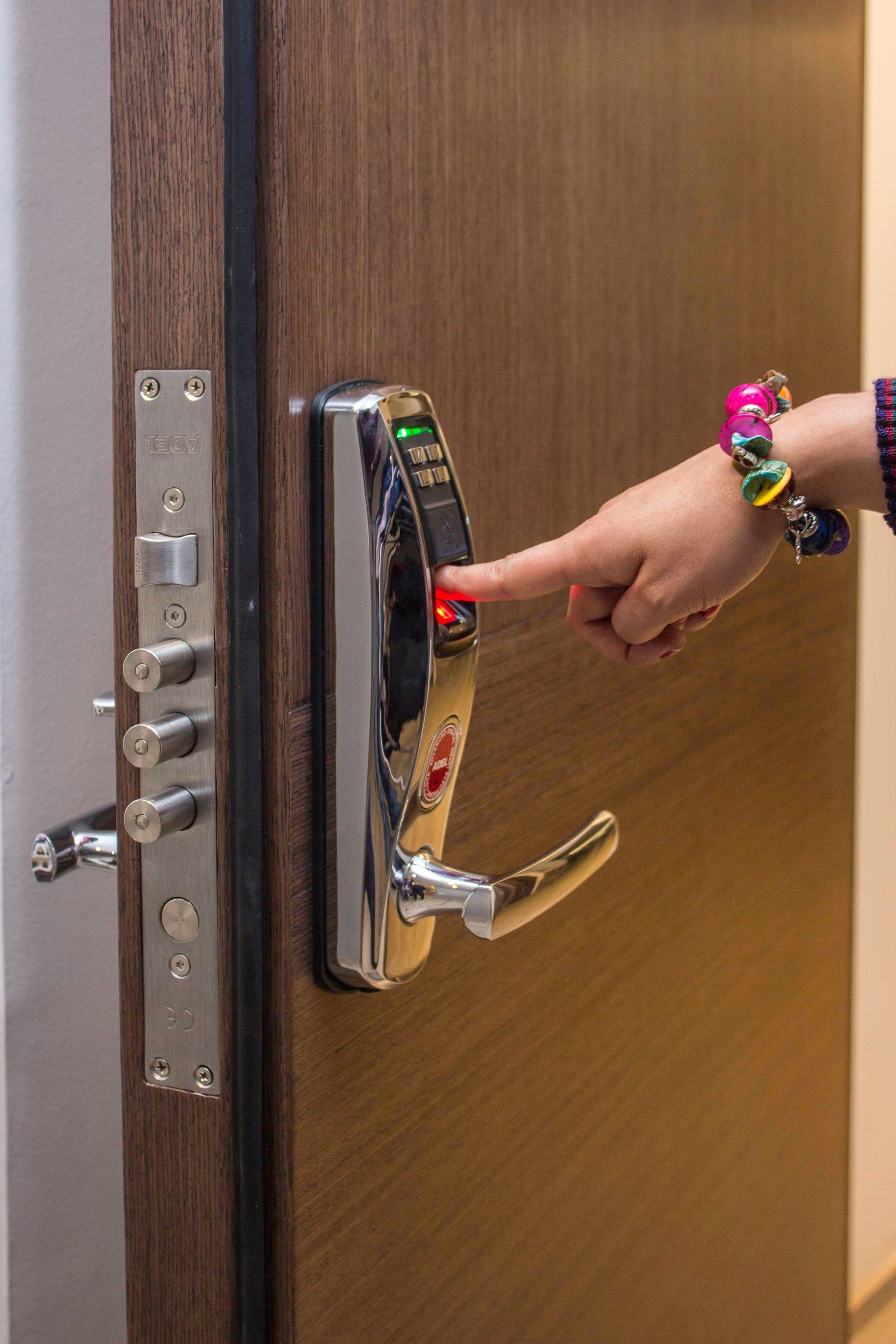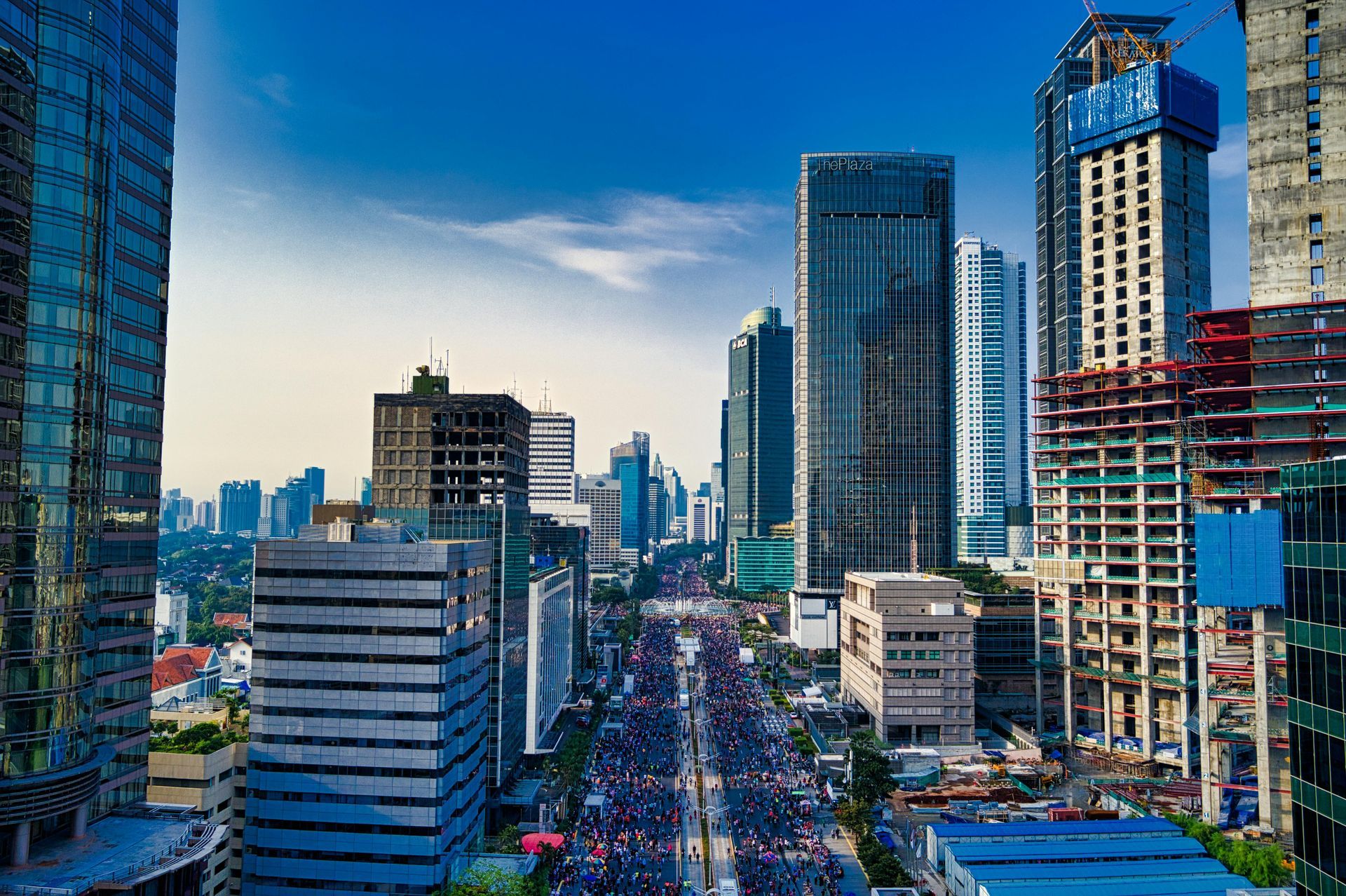Have you ever noticed how the simple act of hearing your deadbolt click into place can instantly make you feel safer? There's fascinating psychology behind our relationship with locks and security systems. As humans, we've developed deep emotional connections to the physical barriers that protect our most valuable possessions and loved ones.
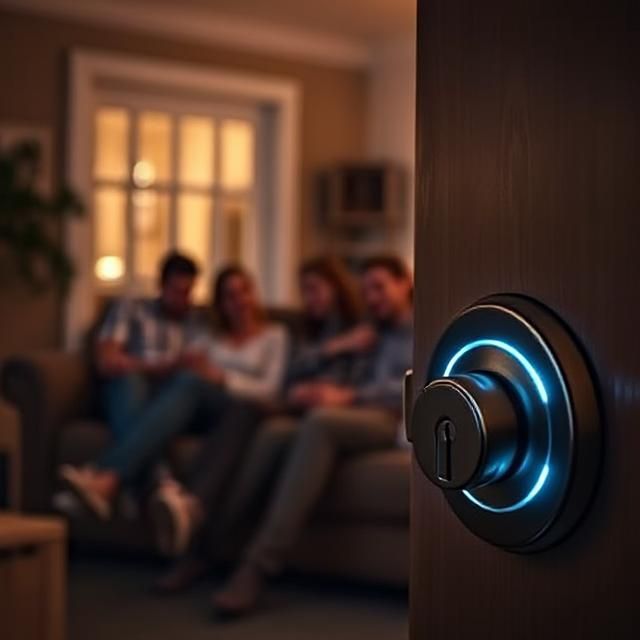
The Emotional Weight of Security
When we lock our doors each night, we're not just engaging a mechanical device – we're performing a ritual that signals safety and control. This psychological aspect of security often gets overlooked in discussions about lock technology, but it's perhaps the most important factor in choosing the right security solutions for your home or business.
Research in environmental psychology shows that people who feel secure in their living spaces experience lower stress levels, better sleep quality, and improved overall well-being. The locks on your doors serve as the first line of defense, but they also provide something equally valuable: psychological comfort.
The Sound of Security
Different types of locks produce distinct sounds that our brains interpret as security cues. The solid "thunk" of a high-quality deadbolt engaging sends a different message than the soft click of a standard door handle lock. These auditory signals become part of our daily security rituals, providing subconscious reassurance that protection is in place.
Smart locks introduce new psychological dynamics through their technological interfaces. The beep of successful authentication, the buzz of remote unlocking, or the notification ping on your smartphone all serve as modern security cues that our brains are still learning to interpret and trust.
The Paradox of Convenience vs. Security
Modern consumers face an interesting psychological dilemma: we want maximum security, but we also demand convenience. This creates internal tension that affects our decision-making process when selecting security solutions. Too much security can feel restrictive, while too little feels irresponsible.
The most effective security systems strike a balance that feels natural and unobtrusive. When locks are difficult to operate or security measures feel cumbersome, people often develop workarounds that actually reduce overall security. Professional locksmiths understand this psychological component and can recommend solutions that feel both secure and user-friendly.
Trust and Technology Acceptance
Adopting new security technology requires overcoming psychological barriers related to trust and familiarity. Many people feel more comfortable with traditional mechanical locks because they can see and understand how they work. Electronic systems, while often more secure, can feel mysterious and potentially unreliable to those unfamiliar with the technology.
This trust factor explains why professional installation and explanation are so crucial for smart security systems. When people understand how their security technology works, they're more likely to use it properly and feel confident in its protection.
The Neighborhood Effect
Your security choices don't exist in isolation – they're influenced by community standards and neighborhood norms. People naturally compare their security measures to those of their neighbors, creating informal security benchmarks. This social aspect of security psychology affects decision-making in ways that purely technical considerations cannot.
In communities where high-end security systems are common, residents may feel pressure to upgrade their own systems. Conversely, in areas where basic security is the norm, over-securing can create social discomfort or unwanted attention.
Fear vs. Preparedness
There's a crucial psychological distinction between security measures motivated by fear and those driven by reasonable preparedness. Fear-based security often leads to over-complicated systems that create more problems than they solve. Preparedness-based security focuses on practical, proportional responses to genuine risks.
Professional security consultations help distinguish between these motivations, ensuring that security upgrades serve practical purposes rather than simply addressing anxiety. The goal is creating genuine security that enhances rather than restricts daily life.
The Ritual of Checking
Most people develop evening routines that include checking locks, windows, and security systems. These rituals serve important psychological functions beyond their practical security value. They provide closure to the day, establish boundaries between public and private spaces, and create feelings of control and safety.
When security systems are difficult to check or verify, people often feel unsettled even when they're actually well-protected. Effective security design considers these psychological needs and provides clear, reassuring feedback about system status.
Children and Security Psychology
The way children experience home security affects their long-term relationship with safety and protection. Complex security systems can create anxiety in young family members, while overly simple systems may not provide the psychological comfort that adults need.
Family-friendly security solutions consider these multi-generational needs, providing robust protection while maintaining a welcoming home environment. This might involve smart locks with child-safe features or traditional systems with intuitive operation that children can understand and trust.
The Business Psychology of Security
Commercial security psychology differs significantly from residential concerns. Business owners must balance employee comfort, customer accessibility, and asset protection. Security measures that feel oppressive to employees can actually reduce overall security by encouraging shortcuts and workarounds.
Effective commercial security feels natural and unobtrusive while providing comprehensive protection. This requires understanding the psychological dynamics of workplace security and designing systems that support rather than hinder daily operations.
Making Security Personal
The most effective security solutions are those that feel personally appropriate rather than generically applied. This means considering individual comfort levels, lifestyle patterns, and specific concerns when designing security systems. What works perfectly for one family may feel completely wrong for another, even in similar circumstances.
Professional security consultations involve understanding these personal factors and translating them into practical recommendations. The goal is creating security solutions that feel like natural extensions of your lifestyle rather than imposed restrictions.
The Future of Security Psychology
As security technology continues evolving, understanding the psychological aspects becomes increasingly important. Biometric systems, artificial intelligence, and predictive security measures all introduce new psychological considerations that affect user acceptance and effectiveness.
The most successful security innovations will be those that not only provide superior protection but also feel psychologically comfortable and trustworthy to users. This requires ongoing attention to the human factors that influence security decision-making.
Conclusion
Your relationship with security is deeply personal and powerfully psychological. The best security solutions recognize this human element and provide protection that feels as good as it actually is. When locks and security systems align with your psychological needs for safety and control, they become powerful tools for peace of mind.
Understanding the psychology of security helps explain why professional consultation is so valuable. It's not just about mechanical functionality – it's about creating security solutions that work with your mind, not against it. When security feels right, it's more likely to be used correctly and provide the protection you need.
A-Area Locksmith: Where Security Meets Peace of Mind
Your Trusted Security Partner in New Port Richey and Beyond
At A-Area Locksmith, we understand that true security goes beyond just locks and keys – it's about creating peace of mind for you and your family. For over 20 years, we've been helping residents and businesses throughout New Port Richey, Trinity, Holiday, Palm Harbor, Hudson, Tarpon Springs, Bayonet Point, and Shady Hills find security solutions that feel as good as they perform.
Why Choose A-Area Locksmith?
🔒 23.5-Hour Availability - We're here when you need us most
🏠 Residential Expertise
- Home security solutions that fit your lifestyle
🏢 Commercial Solutions - Business security that supports your operations
🚗 Automotive Services - Vehicle security and emergency assistance
🔧 Smart Technology
- Modern security with traditional reliability
📞 Local Knowledge -
Deep understanding of Florida's unique security needs
Our Service Promise
When you choose A-Area Locksmith, you're choosing more than a service provider – you're choosing a security partner who understands that the best locks are the ones that make you feel truly safe. From traditional deadbolts to cutting-edge smart systems, we help you find the perfect balance of security, convenience, and peace of mind.
Ready to secure your peace of mind? Call A-Area Locksmith today!
📞+1
727-942-6177
🌐 aarealocksmith.com
📍 Serving New Port Richey & Surrounding Areas

